Continues…
My assignment in Malaysia
My first assignment abroad was Bangladesh High Commission in Kuala Lumpur, Malaysia from 1977 to 1981 as third secretary where Major-General K.M.Safiullah, Bir Uttam, was the High commissioner—the first Chief of staff of Bangladesh army. In the embassy I was assigned to look after commerce, trade, culture and news media. Apart from these assignment I was ghost writer for the High Commissioner’s political reports in spite of the fact Syed Noor Hossain, first secretary, was looking after political affairs. Normally ,High commissioner dittoed my report and signed for the perusal of the Ministry of Foreign affairs. During my assignment in Malaysia, I have had success in introducing Bangladesh products in the market. Jute carpets, rayon were well received in the market of Malaysia. I also succeeded to sell potato and sugar when Bangladesh had surplus in producing these two items during the reign of President Ziaur Rahman. It was really amazing to note that I succeeded in organizing Bangladesh single market exhibition in Kuala Lumpur Hilton hotel. A meeting was arranged with Dr.Mahathir Mohammad, Deputy Prime Minister in charge of commerce and trade for Bangladesh delegation. In recognition of my service, I had received a letter from Mr.Iftekharul Alam, Chairman of Spark Limited and a leader of Bangladesh trade delegation to Malaysia. I quote from his letter dated 15 April, 1981 which said” I feel that, with your help, it has been possible for the delegation to establish very purposeful contacts and to effect considerable business”.
For the first time I succeeded bringing out special supplement in New Straits Times, major daily newspaper of Malaysia, on the national day of Bangladesh in 1981.During the visit of President Ziaur Rahman to Kula Lumpur in April 1979 President inaugurated display center of Bangladesh products set up in the embassy, which received coverage in newspapers in Malaysia. Here High commissioner was about to introduce me to the President but President Zia told him that he knew me. As instructed by Foreign Minister Professor Shamsul Haq I was looking after two women members of the Parliament plus wife of the President Khaleda Zia. I arranged a programme for them to Malaysia museum.
I also happened to receive Hizbul Bahar ship, which was bought by Bangladesh government during President Ziaur Rahman’s time for transporting pilgrims during Hajj period, in mid sea of Penang of Malaysia.accompanied by high officials, Chittagong port authority officials, wives of high officials, business magnates, journalists and some renowned performing artists, ship travelled from Chittagong to Penang and Singapore ports. I was caught unaware when many passengers did not have visa for Malaysia and validity date of passports of some ladies had been expired. Captain of the ship requested me to help these passengers to have allowed to visit Penang for few hours with the permission from Immigration authority. I went to the immigration authority in Penang to seek their permission. Having discussed with High Commissioner I gave an undertaking that no passenger would be left behind when the ship would be leaving Penang next day in the evening for Singapore.
With the help of Bangladesh Honorary consul in Penang and captain of the ship a cultural cum dinner party was arranged in the ship. Ferdousi Rahman, Sabina Yasmin and Abdul Jabbar were among the artistes performed songs. Incidentally, I met Atiqul Alam, Reuter representative in Dacca and editor of Azadi of Chittagong Professor Abdul Khaleque with whom I have had long association while working in Radio Pakistan, Chittagong. Atiqul Alam was representative of Pakistan Time of Lahore and Chief reporter of Chittagong daily Unity. apart from them I met Nurul Qader Khan, former CSP and first Cabinet secretary of Bangladesh, who in fact joined Bangladesh government in exile in India from Deputy Commissioner of Pabna and another CSP officer Abdul Malek whom I met in Naogaon while he was there as Sub divisional officer during Pakistan period in 1967. By now Nurul Qader Khan became pioneer of establishing garment factory in Bangladesh when I met him in Hizbul Bahar. They were travelling free of cost as a guest of President Zia. on the second day Ship was not allowed to leave by Immigration officers because one passenger was missing. Luckily ,the passenger reached at the jetty at around 5 in the evening. He was Bangladeshi doctor working in Saudi Arabia. that was one of the many episodes I faced with during my career as diplomat.
Being member of diplomatic corps, I was associated with three diplomatic associations in Kuala Lumpur. As a member of press corps, I visited Sabah and Sarawak states of Malaysia. Both the states were cut off from road communication like erstwhile East and West Pakistan. The trip to Sabah and Sarawak was sponsored by press wing of Malaysian Wisma Putra (Foreign office). Governor of Sabah gave audience the delegation. In Sabah I was received by Honorary Consul of Bangladesh Musa Aman where I met Mr.Fazlul Haq, Ph.D an economist specializing in agricultural. Fazlul Haq was the chief officer of the farm owned by Musa Aman. Wife of Fazlul Haq who also obtained Ph.D in Psychology from Manila, was the eldest sister of Sabina Yasmin.At both places we were briefed by press wing of the government. Dr.Fazlul Haq is the founder of Uttara University and a girl College in his village at Kushtia.
In Sarawak, we enjoyed one night in the Long house in the jungle.It was located at Simanggang about 45 Kilometers off Kuching, capital of Sarawak. We were welcomed in the long house in a dramatic way, so to say. we reached the long house by the evening. I heard the sound of gunfire. It was followed by slaughtering of pigs as a welcome gesture. Every one of us had to touch blood of pig by foot to avoid evil spirit in the night.A Long house looks like what its name implied. In fact it is not only a house, but it reflects tradition, culture and way of life. Two parallel long verandahs run along its entire length. the outer Verandah without roof facing the river is used mainly for drying paddy in the sun, placing washed clothes for drying and as latrine and the inner one, beneath the roof is used as a work-place for the women, social meeting place and as a passage way from open doors lead into the rear half of long house. Each living room along with the verandah is separated by a partition. The whole structure is raised about twenty feet off the ground on hardwood piles, and is roofed over.The long house we visited is inhabited by twenty families. The families jointly built the Long House and are responsible for its upkeep. As a result, the entire verandah remains tiptop condition. This type of house where a large number of family members live together may have been devised for defense from evil spirit or head-hunting. The room was allotted to two of us belonged to headman of Iban tribal of Sarawak. We reached Rumah Mau at Skrang about five miles further up-river in a deep jungle area surrounded by hills when the sun had already set in.
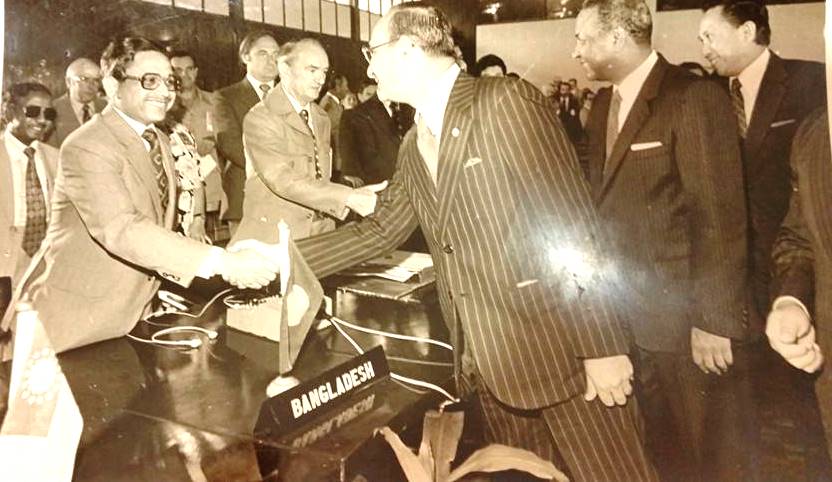
On entering Long House guests were offered a small amount of tuak (Rice wine) as a gesture of hospitality. We were ushered along the Long House verandah with the accompaniment of gong music till the end of the last door and returned to the Headman’s verandah. It was followed by Biau or cleansing ceremony. It was conducted by Encik Libau to get rid of any ill-luck or misfortune that may befall on us. At this stage we were entertained with light refreshment. After the ceremony over dinner was served in Long House style on the mat in the inner verandah. We were divided into two groups—-Muslims and non-Muslims. There was plenty of delicious food: pulit rice cooked in bamboo, fowl, preserved fish, pork and all the special delicacies prepared for us.Speeches were made by the Headman Mauak Draman and our group leader Encik Djoko Sujono,Presscounsellor from Indonesian embassy in Kuala Lumpur. The whole night was full of music and dances. The musical ceremony began with Pengap song and ended with Gendang which lasted till morning. In the intervening period Ajat bebuncli (warrior dance), Pencha (self-defense dance),Ajat Indu ( ladies dance),Kuntau (Martial art) were performed.While we were enjoying songs and dances, I noticed plenty of pigs, fowls and dogs roaming around underneath the Long House. It was enthralling and rewarding eventful night which will remain in our memory. The British novelist Somerset Maugham spent some days in Simmanggang in 1921 and the scene of this place reflected in some of his short stories.
In Kuala Lumpur, I was guest speaker hosted by The Rotary club of Klang on 9 October, 1978 where I spoke on cultural heritage of Bangladesh. This programme was sponsored by Rotarian Dr.Raza of Bangladesh origin. Rotarian gave standing ovation when I completed my speech. During my stay in Kuala Lumpur, I organized two weeks long solo painting exhibition of Kalidash Karmakar in the campus of Malaya University of Kuala Lumpur. It was inaugurated by Vice-Chancellor of Malaya University, Professor Ungku Abdul Aziz and High Commissioner Maj-General K.M Shafiullah was the chief guest. Kalidas Karmakar was my guest at official residence in Jalan Yap Kwang Seng.
I built up excellent relations with news media of Malaysia. Practically I became spokesperson of Bangladesh embassy in Malaysia. We faced a difficult situation when a member of Bangladesh embassy, Ansari defected. Initially he took shelter in Australian embassy but they denied of such allegation. Originally he was from defense forces and posted at Bangladesh embassy in consular section as an assistant. Ansari got refugee status of the United Nations. While I was in Kuala Lumpur, we received press delegation from Bangladesh in 1978 led by Khorshed Alam, Secretary, Ministry of Information and Broadcasting who retired as Governor of Bangladesh Bank. I prepared a progrmme for press delegation and hosted dinner for them on 30 July 1978. Meetings with Editor of Utusan Malaysia, New Straits Times, a Chinese daily, News agency Bernama, Deputy Minister of Information were arranged .Dinner was attended by Deputy Minister of Information, Editor of Utusan Malaysia, Editor of Business Times, Editor of Bernama were in attendance. Moyneeul Alam, Daily Ittefaq, A.U MuffazalHossain, Daily New Nation, Firdousi Ali of a Daily from Khulna and Syed Noor Hossain, first secretary of Bangladesh embassy attended dinner. I do not recollect name of another newspaper representative from Bangladesh in the delegation.on return to Dacca Secretary of Ministry of Information Khorshed Alam wrote a letter to High Commissioner praising me for organizing programme for the press delegation. During my stay in Kula Lumpur, we faced with exodus of Rohingya Muslim population from Myanmar (Burma) to Bangladesh. Rohingya is ethnic Muslim population in Myanmar who have been residing in Myanmar for centuries. High commissioner was briefed by the Ministry of Foreign affairs and Directorate – General of Foreign Intelligence on the situation arising out of exodus of Rohingya Muslims in Bangladesh. High commissioner did not get a chance to meet with Director-General of Foreign office or office of the Foreign Minister Tenku Ahmad Rithauddin. After a week or so High commissioner had sought my opinion.My suggestion was very simple. I suggested to talk to editors of prominent newspapers of Malaysia. I was assigned to arrange meetings with editors of some prominent newspapers including English, Malaya and Chinese. I also contacted President of ABIM( youth Muslim movement of Malaysia) Anwar Ibrahim who subsequently became Deputy Prime Minister of Malaysia. In fact, I attended his marriage ceremony in Kuala Lumpur. I built up friendship with Anwar Ibrahim who committed to me that he would send a telegram to Wisma Putra urging them to talk to Myanmar government to take back all Rohingya Muslims to Myanmar. Anwar Ibrahim did so in fact. Having published our version on the situation of Rohingya Muslims in Bangladesh by different newspapers Malaysian Foreign Minister faced with volley of questions of the journalists. Being a Muslim country why Malaysia remained silent on this issue. Malaysian foreign Minister’s reply was that as soon a report by Malaysian High commission from Rangoon is received Malaysian government would take a decision on the issue. After two days of the publication of reports, High commissioner K.M Safiullah was granted an interview with Malaysian Foreign Minister. It would not out of place to mention that I hosted dinner in honor of S.M.Ali, Regional Communication advisor to UNESCO with the base in Kuala Lumpur who became known in the world of journalism as distinguished Journalist. It was attended by Editor of Utusan Malaysia and a few other journalists from New Straits Times andBernama, news agency. S. M. Ali served as Managing Editor of the Bangkok Post, roving foreign editor of the New Nation of Singapore and the managing editor of Honk Kong Standard. In return, S.M Ali invited me to a dinner along with Times of Indian former Editor Dilip Mukherjee at a hotel Majestic near Kuala Lumpur railway station where British Poet Rudyard Kipling spent sometimes. Dilip Mukherjee was working with Business Times of Kuala Lumpur at that time. In 1992, S.M Ali became founder-Editor of Daily Star of Dacca.
I was one of the three members Bangladesh delegation participated week-long international conference on development of communication in Asia-Pacific region sponsored by United Nations Education and Cultural organization (UNESCO). The delegation comprised of High commissioner, Director-General of Bangladesh Betar Kamaluddin Ahmad and myself. Incidentally, I worked briefly with Kalamuddin Ahmad in Radio Pakistan, Chittagong where Kamaluddin worked as News Editor in 1996.Kamaluddin had command over English literature. I have had occasional differences of opinion on the composition of News bulletin.At one stage he accepted my theory for preparation of news bulletin for Radio. The language should be lucid but understandable by commoners.Most of the time Kamal Uddin Ahmad remained, as absentee News editor. He was not happy with posting in Chittagong from the post of Director of Public Relations of WAPDA, Dacca. His wife Nazma Ahmad belonged to Pakistan accounts service. Their death was pathetic who met with an motor accident while Kamaluddin Ahmad was driving back from Savar national memorial on 26 March,1982. His son survived because he was not travelling with parents. Kamaluddin, Nazma Ahmad and their daughter succumbed to injury near Mirpur crossing road.
I had arranged two-week training programme for ten member newscasters from TV and Bangladesh Betar in Kuala Lumpur. Director-General of Bangladesh Television Jamil Chowdhury had set the ball rolling with signing an agreement with Asian Broadcasting Union. I helped him drafting an agreement. Rokia Haider, Asma, Laila Muzzemmel, Saleh Akram etc etc undertook training .Rokia Haidar is now head of Bengali service of Voice of America at Washington ,DC after the retirement of Iqbal Bahar Choudhury. I gave a dinner in honor of news casters and program organizers of Asian Broadcasting Union. On the concluding day I gave brief speech thanking organizers for imparting training to our newscasters. A big student delegation from Eden Girls college of Dacca, accompanied by two teachers , had been on a study tour to Malaysia. I received the delegation from Kuala Lumpur railway station because they were travelling by train from Bangkok. Programmes were chalked out for student delegation in Malaya University in Kuala Lumpur and University Sains Malaysia in Penang. Here I found Professor Aminul Islam as teacher who was from Dacca University where he was Professor of Geography. I accompanied the delegation to both educational institutes. High Commissioner hosted dinner for the delegation.
My stay in Kuala Lumpur was successful which had been reflected by hosting farewell dinner by diplomatic press corps in a hotel in Kuala Lumpur in my honor where I invited Deputy Information Minister and Dr. Rounaq Jahan who was working with an UN organization in Kuala Lumpur as my guest of honor. I also received gifts from some journalists of Kuala Lumpur.
On return to the Ministry of Foreign affairs I was promoted as Deputy Director in External Publicity Division of Foreign ministry in May,1981.In 1985 my services were placed in West Asia desk of Ministry of Foreign affairs which is known in Europe as Middle East. During two years in West Asia desk I had developed personal relations with Abdul Latif A.Al- Maimanee,ambassador to Bangladesh from Saudi Arabia. He had knack to know Bangladesh writers in particular Poet Nazrul Islam.In fact, I presented some books on Nazrul in English along with two of my articles on Nazrul. Saogat Editor Nasiruddin and Nazrul Islam and Nazrul’s contribution to journalism were written by this writer which Daily Star carried. I would like to quote from a letter of Saudi Ambassador of July 17,1986 which, interalia ,said” it does not go without saying in this respect that, those valuable books will open a great window for me to have a better understanding to the beauty of poetry as well as philosophy of that great poet of Bangladesh”. Saudi Ambassador also entertained me over dinner and appreciated for briefing him on Nazrul Islam. Abdul Latif A. Al-Maimanee was editor of Saudi Gazette before becoming Ambassador to Bangladesh.
December, 1985 was eventful month for Bangladesh. The dream of President Zia for Regional cooperation in South Asia bore fruit by launching South Asia Association for Regional Cooperation (SAARC) in Dacca on 8th December, 1985. It was inaugurated by President Hussein Mohammad Ershad in presence of Prime Minister of India Rajiv Gandhi, who succeeded his assassinated mother Indira Gandhi, Gen. Ziaul Haq, President of Pakistan, President of Sri Lanka Jayewardene, King of Nepal Birendra and Bhutanese Monarch, Jigme Wang Chuck and President of Maldives, Mamoon Abdul Gyoon. Bilateral talks were held at Sangsad Bhaban after inaugural session of SAARC while cultural functions of seven SAARC countries took place in Osmani Memorial Hall, which began on First of December. On the inaugural day colorful function of Bangladesh culture was presented to the audiences, including seven head of states of SAARC countries. Mr.Shafi Sami, Director -General of South Asia desk in the Ministry of Foreign affairs had been appointed Chief coordinator to organize inauguration of SAARC while I was appointed as Director coordination of cultural functions of seven countries in collaboration with Shilpa Kala Academy. I was given an assignment to maintain liaison with Shilpa Kala Academy and foreign artists in organizing functions in Osmani Memorial hall. My office was located at the ground floor of Osmani Memorial hall. M. N. Anwar, Assistant Director, my colleague in the Ministry, was assisting me there along with two stenographers. I have had hell of problems from inviting guests. It was herculean task to accommodate all guests in 700 seats of the auditorium of Osmani Memorial Hall. My meeting about the arrangements was held at the residence of Shafi Sami at his Circuit House after midnight while I was returning from Osmani Memorial hall. Two days before the inauguration, we had meeting with President Ershad at Sena bhaban at 8 O’clock in the evening where Chief of Staff of the army, Gen Atique was present. Having listened to the progamme President instructed to include three Chairmen of the corporations and their spouses for cultural soiree of India and Pakistan. Incidentally, one of the spouses of the Chairmen was President’s fiancé. It was interesting to note that Chief of staff sarcastically told Shafi Sami why our friends would miss the opportunity in having to see such cultural functions. This conversation took place after the departure of the President. One day I received a telephone call from Chainman of Dacca WASA who was interested to witness cultural function of India only, but incidentally he got invitation to witness performance of Bhutanese. At one stage he suggested that he would cut water connection to my residence in spite of my argument that it was simply impossible to accommodate each and every important personalities in the programs of India and Pakistan. Invitees has the approval of the President. Chairman did not believe my argument. I told the episode toShafi Sami.He provided me with walky-talky to get in touch with him only.I was instructed not to receive telephone calls. There were five telephone lines provided to our office in Osmani Memorial Hall. Heavy security protection was provided too.
Education Secretary was assigned to look after budget while Mohiuddin Khan Alamgir,now retired as Home Minister from Awami League cabinet of SK.Hasina,was working as Director of Finance of SAARC inauguration committee. Mohiuddin Khan Alamgir was Joint Secretary of Ministry of Finance at that time. Foreign artists were accommodated at Hotel Purbani in Motijheel commercial area.Mohiuddin khan Alamgir hosted dinner for visiting foreign artists at Hotel Purbani, including organizers of SAARC.Both Director -General of Shilpa Kala Academy Professor Abu Hena Mustafa Kamal and Mohiuddin Khan Alamgir visited our office at Osmani Memorial Hall. On the concluding day, I received verbal congratulation from additional Foreign Secretary Abul Ahsan for conducting successful event on the concluding day of the inauguration of SAARC.
Posting in eastern Europe
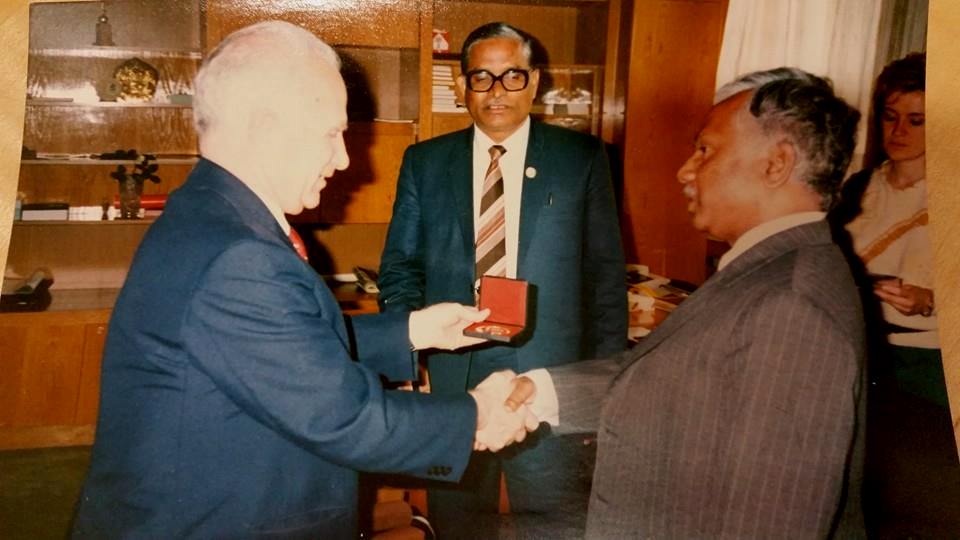
In June 1987, I was posted as First Secretary to Bangladesh embassy, Bucharest, Romania, an eastern European country which remained under the hegemony of the Soviet Union. It was two-member embassy of Bangladesh. Anwar Hashim was the Ambassador of Bangladesh to Romania concurrently accredited to Bulgaria, another communist country in Eastern Europe. My departure was delayed one week because I missed the plane to fly to Bucharest via Rome.Next week myself along with my family travelled to Bucharest via Athens. There was stop over almost three hours to go to Bucharest via Tarom,Romanian plane. There were few passengers travelling to Bucharest. The plane was not flying steadily .At times the plane was flying roughly. Tea that was served slipped from the table and spoiled my suit.
First one week I enjoyed as joining time while the First Secretary Abdus Salam was preparing to leave for Bangladesh on transfer. We were staying in Bucharest hotel. On completion of one week we were moved to a residence which was located within walking distance from the embassy. Having settled down I formally joined the embassy and Ambassador Anwar Hashim, who incidentally married grand daughter of R.P Shaha, aphilanthropist who established Kumudini Hospital and Girl High school in Tangail, briefed about relations between Bangladesh and Romania. I also received briefing on the relations that Bangladesh had been maintaining with Bulgaria. In particular, Ambassador touched on education that many Bangladesh origin students are having in Bulgaria in Medicine, agriculture, and arts and paintings. there were about eighty students studying in Bulgaria since Bangladesh came into being on scholarships through the courtesy of Bangladesh communist Party and through education Ministry.
Romania was under iron curtain of communist system while its ruler became dictator: Nicolai Ceausescu who ruled the country iron-handedly for 25 years. Incidentally, Romanian President Ceausescu visited Bangladesh at the invitation of President Hussein Mohammad Ershad in 1986. Ceausescu had made history by not attending civic reception arranged for him until recitation of Quran is complete.religion was banned in Romania during the rule of Nicolai Ceausescu.
In contrast to Bulgaria, I found two students completed their studies in Bucharest. One student Shawkat Iqbal was established himself as business personality while doctor by profession Gurupada Shaha from Chittagong was in jail on a charge of smuggling foreign goods. I have had several meetings in the Justice department and met twice with Guru Pada Shaha in Jail to release him who already covered two years in Jail.Jhrana, youngest sister of Guru Pada shaha also came to Bucharest from Germany to release her brother. I arranged a meeting between Guru Pada shaha and his sister in jail through Justice Department. His sister told me that Guru Padashaha refused to accept money from his sister for release. Guru Pada Shaha was arrogant and go-getter type which I noticed during conversation in jail. I had to follow restriction imposed by security police that conversation should be confined to English, but Gurupada spoke in abusive language in Bangla against communist system.
In the embassy, we were surprised to receive a communication from a German of Hamburg, Germany to pay to Justice Department for release of GuruPada Shaha. Justice department demanded ten thousand dollar for his release which we did not accept.
Within six months of departure of Jharan,sister of Guru Pada President Nicolai Ceausescu declared amnesty to foreigners who are in Jail. His personal goods were officially handed over to the embassy. At the request of Guru Pada his personal goods were taken over by his Romanian girl friend, Gabriela. Young Romania lady confided to me that they planned to marry on the release of Guru Pada Shaha. Through negotiation, Guru Pada was released and was taken to Bucharest airport to fly back to Bangladesh. one hundred plus dollars that was ceased from Guru Pada was handed over to the embassy. we arranged his return ticket through BangladeshBiman in Athens. I spoke to Manager of Biman to receive Guru Pada at the airport and ensure his return to Bangladesh. Manager did not show up on time and Guru Pada escaped from the airport. after twomonthsGurupada contacted Manager to arrange his return. Ambassador requested Ministry of Home affairs to cancel his passport, but somehow or other Ministry of Home affairs issued a new passport in favor of Guru Pada Shaha. Guru Pada was back to Bucharest in 1991 after the fall of Ceausescu regime and communist system. I understand that Guru Pada has become millionaire in Romania.
In Romania, the life of diplomats and Romanian was on the same footing because Ceausescu had determined to get rid of foreign loan amounting to $ 11 billion from the World Bank. In getting rid of foreign loan, the people In Romania including foreign diplomats had to tight their belt. There was scarcity of food, meat and milk. Meat, pigs and cows were exported apart from wine and Crystal products. Romanian crystal products were worth taking note of. We had to buy deep freezer to keep food items for rainy days. During winter season vegetables in particular disappeared from the market except potatoes. Winter in Romania was harsh. We had to watch knee-deep snow falls during winter time. There was no system to clean roads by cutting snows. Unbelievably, Nicolai Ceausescu succeeded to get rid of foreign debt before his departure from this world. Romania was the only country which succeeded to get rid of foreign debt.
Romania was second biggest county after Poland in Eastern Europe. Romania was also member of Warsaw security pact of the Soviet Union but Nicolai Ceausescu defied Soviet Union’s decision to send troops to join Russian forces to invade Czechoslovakia in August,1968 to quell unrest. For this courageous act Nicolai Ceausescu became hero in the eyes of western countries which facilitated him to visit London, Paris and Washington.
Bucharest played role of hosting International Trade fair every year. In October, 1989 Bangladesh participated in international trade fair in Bucharest. Trading corporation of Bangladesh participated in trade fair representing many firms and business organizations. Bangladesh stall was beautifully decorated with different products of Bangladesh origin. Lucy Iqbal was maintaining liaison as interpreter in the stall.
I placed a request with foreign ministry to pay a visit to Bangladesh pavilion by President Nicolai Ceausescu and his wife Elena Ceausescu, who was Deputy Prime Minister. Similarly, I talked to George Petricu, Secretary, Inter Parliamentary National Assembly who was also interpreter to Ceausescu, to bring the President to our stall. I had developed friendship with George Petricu. Ambassador Anwar Hashim was bed-ridden because of flue. To the utter surprise of my many diplomat colleagues President Nicolai Ceausescu and Madam Elena paid a visit to Bangladesh stall. George Petricu interpreted our discussion which lasted tenminutes. Ceausescu also narrated his visit to Bangladesh. I handed over two gifts including carpet depicting Royal Bengal Tiger and beautiful ladies hand bag to the President and Madam Elena Ceausescu. In Romania, we had Asian second diplomatic group which used to hold monthly diplomatic parties by rotation alphabetically. During my turn, I introduced system to invite Romanians from Foreign and international trade ministries to promote goodwill and friendship. George Petricu was one of such Romanian personalities attended dinner party hosted by me.
I would like to narrate an interesting story of Romanian who is practically hiding near a shop allotted for foreign diplomats. After parking my car, I was moving towards diplomatic shop to buy some products including meat. One gentleman appeared in front of me requesting to bring some meat for him too. He further told me that he did not see meat for the last several months. I bought one kilo of meat for the unknown gentleman but when I came out of the shop I could not find his trace. Story goes in Bucharest that security police are after such person who comes in contact with foreigner. I did not have slightest idea actually, what happened to the gentleman.
Hazardous life of a diplomat
An attack on the consulate of the United States of America in Benghazi, Libya in September, 2012 provoked a debate on the protection of a consulate. American ambassador to Libya Christopher Stevens and another diplomat Sean Smith succumbed to injuries along with two officials. The American embassy in Ankara, Turkey also came under attack on February 1, 2013. However, no diplomat was injured.
The Vienna convention on diplomatic relations of 1961 and the Vienna Convention on consular relations of 1963 are the basis of establishing embassies in foreign countries. Therefore, any attack on foreign embassies could be termed an attack on the county that an embassy represents. Addressing newly recruited Foreign Service officers at Foreign Service Institute on May 20, 2014 Secretary of state John Kerry said: the danger of diplomacy is not unique to our time. We, as a nation, need to continue our larger conversation about the inherent dangers of diplomacy, ever mindful that we undertake them as clear-eyed and for a reason.The secretary of state invoked his father’s career in the foreign service who described diplomat as foreign policy outdoors which he explained working directly with men and women around the world, from government officials and local leaders to civil society groups and ordinary people on the street.
Diplomacy has been characterized as the first line of defense of the country. The concept of diplomacy and the role of a diplomat are not clear to many around the world. A probable reason for this is the lack of knowledge or interest in diplomacy. This has been borne out by former Under Secretary-General of the United Nations for political affairs, who served as US ambassador earlier, in a signed article, which the Washington Post carried on 26 July, 1989, that he had been misidentified as a forest service ranger and a member of the foreign legion. In the past, a diplomat was treated as a spy of the foreign government, in communist countries in particular. As a matter of fact, since the war broke out between Pakistan and India in 1965, diplomats posted in two capitals had been targeted on spying. In 2003, India had expelled four Pakistani diplomats and two staff members on a charge of their incompatible with the status as members of the diplomatic missions on January 24 and Pakistan took reciprocal measures by expelling three diplomats and a staff member on January 25.
American embassies around the world and its diplomats are facing a critical situation. There were as many as 13 attacks on American diplomatic posts in Calcutta in India, Karachi in Pakistan, and Riyadh in Saudi Arabia which killed 17 Americans and injured 51 Americans during the reign of President George W. Bush. In 1998, American embassies in Kenya and Tanzania were bombed simultaneously on 7 August. Around 200 Kenyans and Tanzanians were the victims while US ambassador Prudence Bushnell to Kenya was injured. The life of diplomats and other personnel in American embassy in Teheran was miserable when crowds from Tehran seized the American embassy and they remained hostage from 1 November, 1979 to 20 January, 1981. It was record-breaking crisis in diplomatic parlance.
With the fall of Romanian President Nicolai Ceausescu who ruled the country with iron-handedly for 25 years, on 24 December,1989, fighting broke out between the army along with Romanians and Securitate, the powerful security forces only loyal to Nicolai Ceausescu, for six days. Fighting mostly concentrated near TV station and Otopeni (airport). Since our official residence was located near TV station, many bullets pierced through the windows and landed in the house. We got scared and left the house and took shelter on the ground floor of Bangladesh embassy which was near to our house. There were no electricity for three days and no government was in charge. Embassies and diplomatic residences were uncared for.Despite ambassador Anwar Hashmi’s request to allow Ambassador and only diplomat to leave Bucharest for a short period was not granted by Bangladesh foreign office. At that critical period I was serving as First Secretary in Bangladesh embassy. We left with uncertain situation. The residences of British and Peruvian ambassadors and German counsellor had been damaged heavily. Atkinson, wife of British ambassador, woke up to find that their house was on fire. She crawled to the first floor along with her son who was on vacation from London. Incidentally, German counselor’s residence was located near the British ambassador who saw the flames and rushed to British residence and rescued British ambassador’s wife and his son. This was the episode of hazardous life of diplomats in a crisis-ridden country.
New page
During this turmoil, I had noticed not a single untoward incident took place except fighting between military along with Romanian people against Securitate. My next-door neighbor was Romanian but her house remained intact. Not a single item was looted in spite of the fact that some forces had broken the door to fire from the window of the apartment. Actually, I was not aware whether military or Securitate used the apartment to fire against their enemy. However, they did not open the door of our apartment. I had written in Romanian on the front door that this apartment belonged to foreign diplomat. On the other side of the corridor apartment was belonged to first secretary of Pakistan embassy. That was remained untouched.
To demonstrate to the outside world and his own people that the situation in Timisoara was insignificant and under control, Nicolai Ceausescu went on a state visit to Tehran from 18- 20 December, 1989. In fact, Ceausescu was in touch with the developments in Timisoara from Tehran and directed to crush the uprising. As army did not participate in shooting people indiscriminately as had been done by Securitate in Timisoara, the people stubbornly resisted the oppression and inhuman treatment. The agitators destroyed many shops and vehicles and burnt down pictures of Ceausescu out of disgust and hatred.
On return from Tehran Ceausescu hurriedly called public meeting on 21 December at Republicii in front of the Central office of Romanian communist party. After a short while of his speech, several thousand people reacted against his speech and charged him of murdering innocent children and women in Timisoara. Ceausescu was dumb-founded at the encounter of the people and returned to his office. Securitate desperately tried to disperse the crowd and opened fire on the people. Meanwhile, the crowd of protesters spread from the Republic Square to Magheru Boulevard of Bucharest and put up barricade around Hotel Intercontinental and University square. Processionists from different parts of the capital joined protesters chanting slogans: We are Romanians. We are not communists. The whole Europe is with us. Protesters neither left Central office of the Communist Party, nor spared their efforts to put up more resistance. By the morning of 22 December nearly one hundred thousands demonstrators assembled. It was really an unprecedented scenario in the monolithic society. Despite firing by Securitate and army, people remained calm and continued unabated slogans against Ceausescu regime demanding Jos Cu Ceausescu si Jos cu Communism (down with Ceausescu and down with communism) until Ceasescu,72 who ruled the country for 24 years iron handedly, was shot to death by summarily military court. The whole area became a battleground. Helicopters were used to disperse the crowd but without any result.It was a scene never witnessed before in Romania.
Amidst confusion and attack and counter attack Nicolai and Elena Ceausescu fled by a helicopter and landed in Tirgovista air port,45 miles off Bucharest, to fly to an unknown destination. As luck would have it, he could not leave the country, because of non-availability of his charter plane. As the mob surrounded the area, accompanied by his wife and a doctor, he ran away by a car. He was in fact chased by the people and was caught in a village on 24 December. Until TV and Radio came out on the air about the arrest of Nicolai Ceausescu and his wife fierce fighting continued between Securitate and the army in different parts, particularly in and around television station and Otopeni (airport). The news of arrest of Nicolai Ceausescu and his wife and a number of Communist prominent leaders evoked spontaneous jubilation all over the country although uprising was confined to Timisoara, Bucharest, Sibiu and Brasov.
Amidst sporadic mortar and gun fires, the special summary military court tried Nicolai Ceausescu and Elena Ceausescu at a secret location and sentenced them to death by firing on 25 December,1989. Daily Star carried an article on the fall of communist system in Romania on April 4, 1992. I wrote that article at the request of founder-editor S.M.Ali on my personal experiences.Bichitra also published an exhaustive article on the fall of communist system written by this writer at the request of Shahryar Kabir who was Executive editor of weekly Bichitra. It was published on 27 December, 1998.
Romania is the only country in Eastern Europe which drew wide attention of the world for bloody uprising that took practically one week to overthrow a dictator. Possibly this is the only country there were massacres took place on a massive scale after Second World War. In Eastern Europe, Ceausescu was the last dictator of Stalin era, who lost life brutally. The people of Romania paid heavily for their journey to freedom from captivity. With the execution of Nicolai Ceausescu, an era of terror and suspicion came to an end in Romania.
I have had the privilege to visit Timisoara following the down fall of the dictator Nicolai Ceausescu to assess the impact of the popular uprisings which stated at Timisoara bordering Yugoslavia (now Serbia) because of confinement of the priest Laszlo Toekes,Hugarian origin priest who was vocal against Ceausescu regime.Deputy Mayor of Timisoara while giving details about the revolution said revolution was spontaneous indeed because of the fact that entire population became unhappy over the developments in the country over the years.Deputy Major Marco Ion, a hero of the revolution, directly participated and guided demonstrations against ruling clique.Marco Ion further told me that the people irrespective of different ethnicity raised their voices against not only Ceausescu but also against communism. The fight between unarmed people of Timisoara and Securitate lasted six days with effect from 16 December,1989. They were, however, assisted by the people from neighboring districts which dispelled the myth that Hungarian origin minority alone were behind the scene to bring about social disorder in Romania. It is true that Timisoara is a cosmopolitan city of Romania which has German, Serbs, Hungarian origin ethnic population, but Romanians are the majority.
Following the fall of communist system in Romania color of Radio and Television had drastically changed to meet the demands of Romania who broken the shackles of communist system. During Ceausescu era, only news of Shaheb- bibi- Gulam used to telecast. Occasionally ,some Romanian films were telecast. After one month of the fall of communist system, authority of Romanian TV had sought an interview with me for a programme to be telecast. The subject was religion in Bangladesh and the life of Muslims in Bangladesh. This was deviation from the communist system in view of the fact that religion was banned in Romania during communist era. It was half an hour programme which was telecast on 1990 in December. I have had the privilege to participate another programme of TV of Romania to celebrate 150 years of birth of Mihai Eminescu, a great poet and novelist of Romania. Eminescu also edited a newspaper entitled: Timul. In the programme I recited a poem of Eminescu in Romanian. At the end of recitation, I was given a standing ovation and presented with a bouquetof flowers. I also visited Iasi university of Romania where Mihai Eminescu served as Director of a Library. I was shown around the library by pro-vice-chancellor of the University.
At the invitation of Chairman of Romanian Association of International Law and International Relations (ADIRI) I participated in a seminar wherein I presented a paper on evolution of south-Asian association for regional cooperation (SAARC). A few officials of Romanian foreign ministry and a number of representatives of South Asian embassies, including Ambassador Anwar Hashim was present. It was presided over by Professor MirceaMalitza,Former Romanian Ambassador to the United States and Deputy Foreign and Education Minister. He was one of eminent educated personalities of Romania. My paper was published in Editura Academiei Romanein September-December issue of 1990.Professor MIcea Malitza is still alive with whom I talked to on November 5,2014 over telephone. It was a pleasant surprise for Mircea Malitza, who is now 82 to receive a call from me after 23 years. Hisdaughter Mihaela was a math teacher to my daughter. We used to live at 24 Soseau Kiseleff, Bucharest.
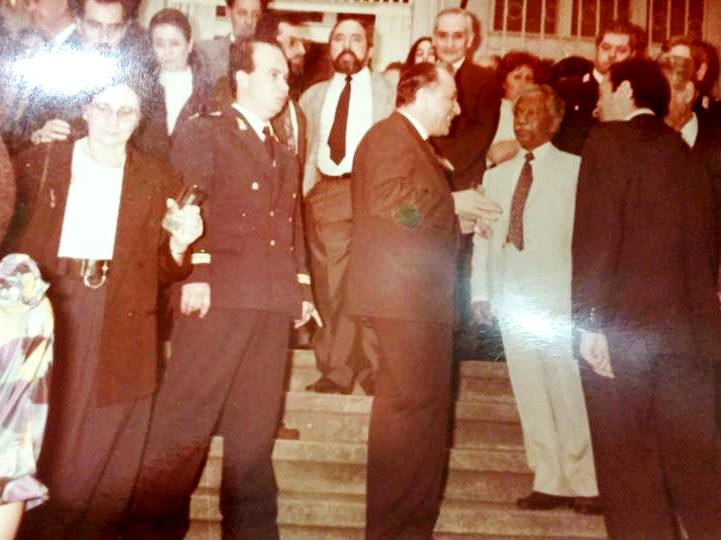
Apart from diplomatic assignments, I have had the privilege to serve as one of seven members to the Board of Directors of American School in Bucharest in Romania on being appointed by American ambassador Roger Kirk on the recommendation of political counsellor of American embassy Clark. I served as one of the Directors with effect from October 1988 until my departure in August, 1991 to Bangladesh. One of my daughters and a son were students in American school, apart from two other students belonging to an accountant of Bangladesh embassy in Bucharest. Actually I replaced Mr.Misra, First Secretary of Indian embassy on his transfer to India. I understand Misra died in Chittagong while he was serving Indian Consul-general office in Chittagong.
While in Romania I played key role in extending Romanian credit for a period of three years until 30 June, 1993 for supply of machinery to cotton spinning mills in Bangladesh. That had been reflected in a note verbale of the Ministry of Trade and Tourism dated 13 September,1990. At that time, I was in charge of the Embassy as Ambassador was on two month’s leave. In 1981 credit agreement was signed between Bangladesh and Romania for setting up two cotton spinning mills in Noakhali and Fatullah,Narayanganj in private sector.
My task in Bulgaria
Bangladesh has been maintaining excellent political and economic relations with Bulgaria, another communist country in Eastern Europe. Bulgaria is located in South-Eastern Europe which is bordered by Romania to the north, Serbia and Macedonia to the West, Greece and Turkey to the south, and the Black Sea to the east. The capital is Sofia surrounded by Vitosha Mountain.
Since Ambassador Anwar Hashim was concurrently accredited to Bulgaria, I was assigned to maintaining relations with the Ministry of Trade and Education, apart from consular work for Bangladesh students. From Bucharest, I used to travel by train to Sofia. I used to board on a train in the evening and arrived in Sofia next day morning. I felt train journey was comfortable. Primarily I used to stay in Grand Hotel Sofia but spent some time with students in hostels to do some consular work. To speak the truth, I enjoyed the company of our students in Sofia. At least on two occasions I was the Chief guest at a function organized by students of Bangladesh studying in Bulgaria on the national day of Bangladesh……….. (to be continued)
The writer is a retired diplomat from Bangladesh and former President of Nova chapter of prestigious Toastmaster International club of America.

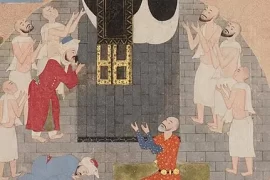
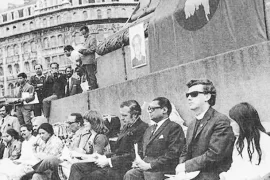
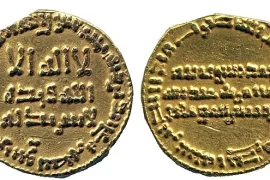
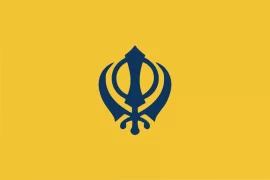
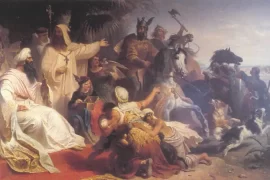
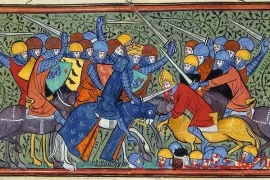

nice memory